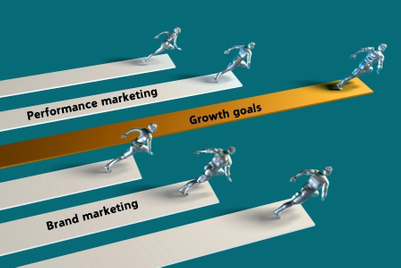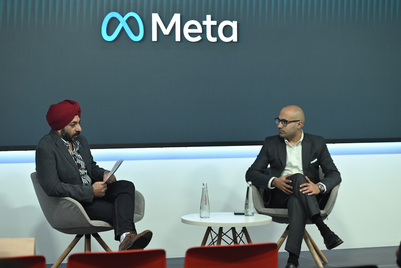.jpg&h=570&w=855&q=100&v=20250320&c=1)
With the launch of Kylaq, Skoda Auto India is shifting gears into a directional change for its go-to-market strategy. Targeting a large base of middle-class consumers in India for its first sub-4 metre SUV, the company is deviating from the premium positioning of its existing car models such as Kushaq and Slavia.
With its new SUV, it is looking to appeal to the price-conscious Indian consumers who want premium features and an impressive design but without burning a hole in their pockets. Priced at INR 7.89 lakhs onward, Kylaq competes with the established brands in India, including Maruti Suzuki Brezza (priced at INR 8.35 lakhs onward), Tata Nexon (INR 8 lakhs onward), Hyundai Venue (INR 7.95 lakhs onward), and Kia Sonet (INR 7.99 lakhs onward).
Hence, Skoda has made localisation a central theme for its latest product addition. Starting with the brand's naming—which is based on the responses of over two lakh Indian consumers—localisation is the key focus of the company for Kylaq, from design to production to marketing. According to Skoda Auto India brand director Petr Janeba, Kylaq tries to incorporate the preferences of a large segment of Indian consumers in terms of design, style, features, and price points.
With a target of selling one lakh Kylaq models in the next 12 months, the company is endeavouring to spread its brand visibility and availability pan-India. Within the next eight months, it will expand its sales and service network from 260 to over 350 touchpoints. The company has a sales and service partner network covering 199 Indian towns. With this expansion, it will have a brand presence across 284 towns, including tier-3 and tier-4 towns by June 2025.
A regional focus
Skoda is customising its marketing approach to adapt to India’s regional nuances. The Czech car maker will introduce a 360-degree campaign strategy covering ads in local languages across various Indian states. With a motto, ‘Speak to India in India’s voice’, it will also rope in regional language influencers to carry its brand messaging to the remotest parts of the country.
India’s small towns present a large pool of young consumers who aspire to own an SUV, and to them, Kylaq will be positioned as a car within reach. Skoda’s localisation strategy in brand messaging will span its media mix including out-of-home (OOH) advertising, print media ads, television commercials, as well as digital to ensure a deeper reach in the rural Indian market.
Stating that every medium offers its own unique advantages, Janeba said, “OOH media is a preferred advertising medium due to its visibility. Print media will also play a key role giving us the reach we need. We want to build emotional bonds with potential customers, which can be done effectively through TV campaigns.”
The Press Information Bureau pegs India’s internet subscribers to be over 95 crores, with over 100 crore smartphone users this year. With such rapid growth in internet users and smartphone adoption in India, including in tier-3 towns, digital has emerged a strong medium for advertising. Skoda will leverage this vast installed-base to take Kylaq’s brand messaging to remote corners of India, in addition to its OOH and print campaigns.
On the fast lane with digital
Skoda’s digital strategy also involves gauging the level and quality of its consumer engagement on a real-time basis, and making necessary changes on the fly based on response. “Performance marketing will be a major part of our strategy, with a focus on digital platforms. Our website remains the most important touchpoint; it has demonstrated its huge potential by generating nearly twenty lakh monthly visits during peak periods,” Janeba informed.
Beginning January 27, 2025, coinciding with Kylaq's bookings, the automobile company will run an emotional 360-degree campaign leveraging all media types across the country. Dividing the Indian market into different regions, the European car maker will craft separate campaigns suitable for every region.
“We are still evaluating whether to focus on four or seven regions separately. Each region will have tailored messaging and media strategies, and we will partner with local media outlets to facilitate this,” Janeba said.
While reaching out to the masses, and speaking their language, Skoda will focus on the vehicle’s features to amplify its brand messaging rather than any big-ticket celebrity endorsement at the moment. Jan Bures, head of sales and marketing at Skoda Auto Volkswagen India said, “We believe that the car’s attributes and value proposition will generate the necessary attention and sales, and we don’t feel the need to rely on paid celebrities for this at present.”
The company appears to be ready with its brand strategy with a strong focus on localisation to create an emotional bond with aspiring car buyers. The next one year will show whether it is able to achieve the ambitious target it has set for itself through fast-track marketing moves.


.jpg&h=334&w=500&q=100&v=20250320&c=1)
.jpg&h=334&w=500&q=100&v=20250320&c=1)
.jpg&h=334&w=500&q=100&v=20250320&c=1)


.jpg&h=334&w=500&q=100&v=20250320&c=1)








.jpg&h=268&w=401&q=100&v=20250320&c=1)
.jpg&h=268&w=401&q=100&v=20250320&c=1)


